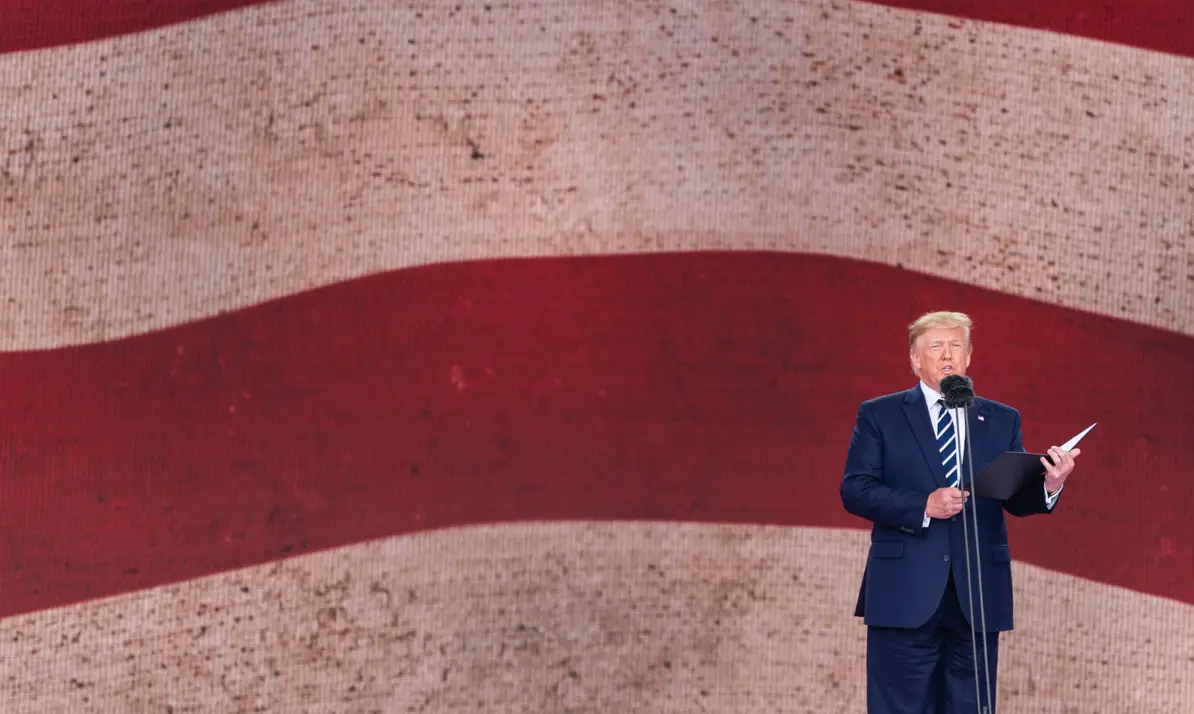This January 20, Donald Trump has once again taken office as president of the most powerful country on the planet. With his neo-imperial outbursts, his contempt for migrants, allied governments and multilateralism, this Trump 3.0 is already affecting the reputation of the United States and the Western alliance system, the pillar of U.S. global power. The narratives of Chinese ambition and Russian aggressiveness find, in Trump’s clumsy bluster, their best legitimization. Mexico, my adopted country, still immersed in the throes of the drunkenness of the populist creole hegemony, will undergo severe commercial and geopolitical tests. It is inevitable to recall, once again, the phrase attributed to Don Porfirio.
The foreign policy agenda of the dominant group within the new U.S. government —including the President himself— is an incoherent mixture of mercantilism, isolationism and illiberal revisionism. It is the work of a populism that, once in government, seeks to colonize the State, with the potential for regime change. This perspective goes against the defense of the liberal order assumed —not without contradictions— by the American State since 1945. Affecting the causes of democratic solidarity, civic empowerment and humanitarian aid at the global level. An agenda without which this world would be even worse off, in the face of the advance of old and new autocracies.
Simultaneously, for certain issues —such as the crises in Cuba and Venezuela— Trumpism may correct bad decisions of the past, given the incapacity of his predecessors and the normative preferences of a Republican sector. As S. Fitzgerald wrote, in a magnificent synthesis of the complexity and contradictory nature of the world, “the test of first-rate intelligence is the ability to hold two opposing ideas in the mind at the same time and still maintain the ability to function”. The same applies, beyond the mind, to the facts of reality that it tries to unravel. The world is not based, tout court, on a coherent order and script. Sometimes the bad guys do certain good things, and vice versa. Sometimes…
After Trump’s inauguration ceremony and his controversial phrases about taking back control of the Panama Canal— the only direct reference to foreign policy in his speech— I see several points to ponder and, perhaps, debate. 1) Pragmatic: is it effective, for the interests and image of the United States, that the way to make a turn to correct the real Chinese influence is by resurrecting a “Monroe Doctrine” language typical of the nineteenth century? Will they be able to achieve what they are looking for, or will they earn more enmity in the target country and the area? 2) Normative: it is defensible, for those of us who are committed to liberal democracy as a domestic and global order, for a great power to claim interests (legitimate or not) in this crude way over other countries, especially over countries with friendly governments and societies that do not pose a direct threat to the power?
If the answer to this second point is “yes”, then let us go ahead and give legitimacy to Chinese and Russian ambitions over their neighbors. And let us get rid of the disguise that we defend the liberal order, since we only support that imperialism that is culturally akin to us. Because sympathizing with McKinley and Teddy Roosevelt and presenting oneself as a Democrat was plausible in the world of the early twentieth century. But after 1918 and especially after 1945, the greatness of liberal democracy and the order protected by the West is based as much on armed force as on a moral and legal example. The other thing, I believe, is that we do as intellectuals and academics did in 1914: we disband from all common spaces to affiliate ourselves to the imperialism that most summons us.
I do not hold my opinion from a position of “pro-green” or naïve nonsense because I have long argued the need —based on evidence and the psychology of the adversary— to respond hard, even with military resources, to the actions of regional dictatorships, China, Russia and their other allies and accomplices in the region; of which I have recently written in Letras Libres and El Mundo. In any case, I sympathize with the vision of the liberal hawks of the Cold War but not with those of imperialist unilateralism, whether classic (19th century) or brand new (21st century). Complicated times are coming for democrats, right-handed and left-handed, of the political center in the West. In our political, associative and cultural worlds, we will see the harmful effects of the emboldening of the illiberal extreme right. A perfect match of the radical leftist positions that, at least in this hemisphere, we have suffered for a quarter of a Bolivarian century.
That said, if in Latin America an emboldened Trump now revives a clear imperial policy of spheres of influence —something different from what the United States supported in the region since the end of the last century— we will regret all the lies and disdain poured on the liberal order by the academia and militancy of radical Latin Americanism. The same ones that have blocked any application of the Inter-American Charter, the ones that torpedo the Organization of American States all the time. Those who have given away the unpostponable and just causes of the peoples of Cuba and Venezuela —my causes and those of many millions of others— to the solidarity, genuine or self-serving, of the extreme right. Always disloyal to the liberal republic, inside and outside our borders.
Maybe even they will evoke with nostalgia, in this new era, the times that are coming to an end. Let us see if their ridiculous quotes from Galeano and false guerrilla posturing will do them any good if Teddy Roosevelt’s Empire prevails over J.F. Kennedy’s Republic. Meanwhile, we will continue here, thinking and fighting …. as Unamuno (pre)wrote, “Against This and That”.
*Machine translation proofread by Janaína da Silva.












